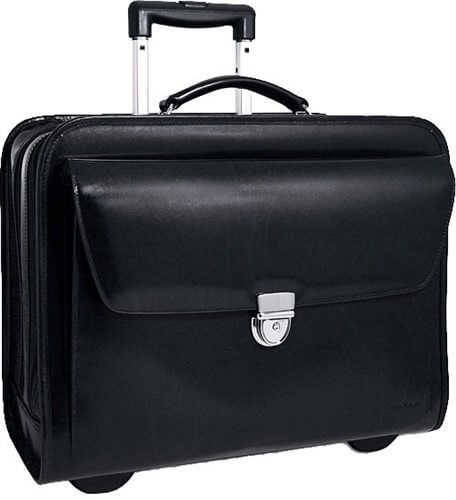When it comes to child support, many parents find themselves navigating a complex landscape of financial obligations. You might be wondering, “If I’m already paying child support, do I have to cover additional expenses?” This question is common and can lead to confusion and frustration. Let’s break it down together.
I pay child support every month and my ex asks me to pay for half of everything else on top of that. Do I have to?

It’s not unusual for one parent to feel overwhelmed by additional requests for financial support beyond the mandated child support payments. The short answer is: it depends. Child support is typically intended to cover basic living expenses for your child, such as food, clothing, and shelter. However, there are often additional costs that can arise, including:
- Medical expenses
- Educational costs
- Extracurricular activities
In many cases, these additional expenses can be shared between parents. If your ex is asking you to pay for half of these costs, it’s essential to review your child support agreement. Some agreements explicitly outline how additional expenses should be handled. If it’s not clear, you might want to consult with a legal expert to understand your obligations better. For more detailed information, you can check out this resource.
Moreover, communication is key. Have an open dialogue with your ex about what expenses are necessary and how they can be fairly divided. This approach not only fosters a better co-parenting relationship but also helps avoid misunderstandings that can lead to conflict.
My ex is fighting to not pay child support guidelines. He has them 18% of the time. Should he actually be paying more?

Child support calculations can be tricky, especially when parenting time is uneven. If your ex has the children 18% of the time, it’s understandable to question whether he should be contributing more financially. Child support guidelines vary by state, but they generally consider the amount of time each parent spends with the child, as well as their income levels.
In many jurisdictions, the more time a parent spends with the child, the less they may be required to pay in child support. However, this doesn’t mean that a parent with less time is off the hook entirely. If your ex’s income is significantly higher than yours, he may still be required to pay a substantial amount, even with limited parenting time. For a deeper dive into child support calculations, you might find this article helpful.
Ultimately, if your ex is contesting the child support guidelines, it may be beneficial to seek legal advice. A family law attorney can provide clarity on how the guidelines apply to your specific situation and help ensure that your children’s needs are met.
In conclusion, navigating child support can feel overwhelming, but understanding your rights and obligations is crucial. Whether you’re paying child support or questioning its adequacy, remember that open communication and legal guidance can make a significant difference in ensuring that your children receive the support they need.
When navigating the complexities of child support, many parents find themselves asking, “If I’m already paying child support, do I have to cover additional expenses?” This question often leads to confusion and frustration, especially when it comes to shared responsibilities like bills and extracurricular activities. Let’s dive into some common scenarios and clarify what you might be responsible for beyond the monthly child support payment.
Should my ex pay half of my son’s cell phone bill?

This is a common question among divorced or separated parents. If you’re already paying child support, you might wonder if your ex should contribute to additional expenses like your son’s cell phone bill. The answer often depends on the specifics of your child support agreement and the laws in your state.
In many cases, child support is intended to cover basic living expenses, which can include necessities like food, housing, and clothing. However, additional costs, such as a cell phone bill, may not be explicitly covered under standard child support payments. If the cell phone is deemed a necessity for your child’s communication and safety, it’s reasonable to discuss sharing that cost with your ex.
Consider having an open conversation with your ex about this. You might find that they are willing to split the bill, especially if it’s a significant expense. If you’re unsure about how to approach this topic, consulting with a family law attorney can provide clarity on your rights and obligations. For more information on child support FAQs, you can check out this resource.
WHAT ARE CHILD SUPPORT PAYMENTS USED FOR?

Understanding what child support payments cover can help clarify your financial responsibilities. Child support is designed to ensure that your child’s basic needs are met, which typically includes:
- Housing: A safe and stable living environment is crucial for your child’s well-being.
- Food: Regular meals and nutrition are fundamental to a child’s growth and health.
- Clothing: Children grow quickly, and they need appropriate clothing for different seasons and activities.
- Education: This can include tuition, school supplies, and other educational expenses.
- Healthcare: Medical expenses, including insurance, doctor visits, and medications, are often included.
However, child support does not typically cover every expense. Extracurricular activities, special events, or luxury items may require additional financial contributions from both parents. If you’re curious about the specifics of what child support payments cover, you can find more detailed information at this link.
LAWYERS ARE FREQUENTLY ASKED ABOUT CHILD SUPPORT
Family law attorneys often receive questions about child support, especially regarding what happens when unexpected expenses arise. For instance, if your child suddenly needs braces or wants to join a sports team, you might wonder if you’re obligated to pay for these costs in addition to your regular child support payments.
Many lawyers advise that it’s essential to review your child support agreement. Some agreements include clauses for shared expenses, while others may require modifications to accommodate new financial responsibilities. It’s always a good idea to keep communication open with your ex and to document any agreements you reach regarding additional expenses.
For a broader understanding of child support and its implications, you might find it helpful to explore discussions on platforms like Quora, where many parents share their experiences and insights.
Ultimately, navigating child support can feel overwhelming, but understanding your obligations and maintaining open lines of communication with your ex can make the process smoother. Remember, you’re not alone in this journey, and seeking advice from professionals can provide the guidance you need.
When navigating the complexities of child support, many parents wonder about their financial obligations beyond the monthly payments. It’s a common concern, and understanding the nuances can help you plan better for your child’s needs. So, if you’re paying child support, do you have to cover anything else? Let’s dive into the details.
CHILD SUPPORT IS DICTATED BY LEGAL GUIDELINES
Child support is primarily governed by state laws, which establish guidelines to determine how much one parent must pay to the other. These guidelines take into account various factors, including the income of both parents, the needs of the child, and the amount of time each parent spends with the child. For instance, in Illinois, the law outlines specific formulas to calculate child support obligations, ensuring that payments are fair and consistent across cases source.
It’s important to note that these legal guidelines are designed to cover the basic needs of the child, such as food, shelter, clothing, and education. However, they may not encompass every potential expense that arises in a child’s life. This is where things can get a bit tricky.
SOME EXTRAORDINARY EXPENSES ARE NOT COVERED BY CHILD SUPPORT
While child support payments are intended to cover essential living costs, there are extraordinary expenses that often fall outside of these payments. For example, if your child has special needs, requires medical treatment not covered by insurance, or participates in extracurricular activities that incur additional costs, you may find yourself responsible for those expenses as well.
Many parents are surprised to learn that costs like private school tuition, sports fees, or even certain medical expenses may not be included in the standard child support calculation. This can lead to confusion and frustration. If you’re in a situation where you’re unsure about what’s covered, it’s worth having a conversation with your co-parent or seeking legal advice to clarify your responsibilities. You can find more insights on what child support typically covers in this helpful article.
COURTS OFTEN DO NOT WANT TO KNOW HOW THE MONEY IS SPENT
One of the more perplexing aspects of child support is that courts generally do not monitor how the receiving parent spends the money. Once the child support is paid, it’s up to the custodial parent to allocate those funds as they see fit. This can lead to concerns for the paying parent, especially if they feel that the money isn’t being used for the child’s benefit.
However, it’s essential to understand that the legal system trusts parents to make decisions in the best interest of their children. If you have concerns about how the funds are being utilized, it’s crucial to approach the situation delicately. Open communication with your co-parent can often resolve misunderstandings. If issues persist, you might consider seeking mediation or legal counsel to address your concerns.
In conclusion, while child support is a critical component of ensuring your child’s well-being, it’s just one piece of the financial puzzle. Being aware of additional expenses and maintaining open lines of communication with your co-parent can help you navigate this journey more smoothly. Remember, you’re not alone in this; many parents face similar challenges, and sharing experiences can provide valuable insights.
Struggling with Child Support and what it covers?
Child support can often feel like a complex web of obligations and expectations. If you’re a parent paying child support, you might wonder, “What exactly does this cover?” It’s a common concern, and understanding the nuances can help alleviate some of the stress. Child support is primarily intended to cover the basic needs of your child, including food, clothing, shelter, and education. However, the specifics can vary significantly based on your location and the individual circumstances of your case.
For instance, in some jurisdictions, child support may also extend to cover medical expenses, childcare costs, and even extracurricular activities. This means that while you’re fulfilling your obligation by paying child support, there may still be additional expenses that you need to consider. If you’re feeling overwhelmed, you’re not alone. Many parents find themselves in similar situations, trying to navigate the financial responsibilities that come with raising a child.
To gain a deeper understanding of what child support is intended to cover, you might find it helpful to check out this resource on child support coverage. It breaks down the various components and can provide clarity on what you might be responsible for beyond just the monthly payments.
THE RECEIVING PARENT DOES NOT HAVE TO GIVE A FULL ACCOUNTING
One of the more frustrating aspects of child support is that the receiving parent is not legally required to provide a detailed accounting of how the funds are spent. This can lead to feelings of uncertainty for the paying parent. You might find yourself asking, “Is my money being used for my child’s needs?” It’s a valid concern, and while it can be disheartening, it’s important to remember that the primary goal of child support is to ensure that your child’s needs are met.
In many cases, the receiving parent has discretion over how to allocate the funds. This means that while you’re fulfilling your financial obligations, you may not have visibility into the day-to-day expenses. It’s crucial to maintain open communication with the other parent, if possible, to discuss any concerns you may have. This can help foster a cooperative co-parenting relationship, which ultimately benefits your child.
If you’re looking for community insights on this topic, you might want to explore discussions on platforms like Reddit, where parents share their experiences and advice. For example, this thread dives into the complexities of child support and what it entails, offering a variety of perspectives that could resonate with your situation.
Ummm you have not paid child support. So what consequences are you talking about?
It’s a tough conversation to have, but if you find yourself in a situation where you haven’t been able to make your child support payments, it’s essential to understand the potential consequences. Many parents worry about the legal ramifications, and rightly so. Failing to pay child support can lead to serious repercussions, including wage garnishment, loss of driving privileges, or even jail time in extreme cases.
However, it’s important to remember that life can throw unexpected challenges your way. If you’re struggling to make payments, it’s crucial to communicate with the court or your child support agency. They may offer options such as modifying your payment plan based on your current financial situation. Ignoring the issue will only exacerbate the problem, so taking proactive steps can help you navigate this difficult time.
For a more visual understanding of the consequences of unpaid child support, you might find this video helpful. It outlines the potential legal actions that can be taken and offers advice on how to address the situation responsibly.
Ultimately, the journey of navigating child support can be challenging, but with the right information and support, you can find a path that works for you and your child. Remember, you’re not alone in this, and there are resources available to help you through the process.
When navigating the complexities of child support, many parents wonder about their financial responsibilities beyond the monthly payments. It’s a common concern that can lead to confusion and anxiety. Let’s explore some of these additional obligations, starting with a specific example: braces.
Child support and braces
Have you ever thought about how child support interacts with specific expenses like braces? Dental care can be a significant financial burden, and many parents find themselves asking if they are responsible for these costs in addition to their child support payments. Generally, child support is intended to cover basic living expenses, including food, housing, and clothing. However, expenses like braces often fall into a different category.
In many cases, the court may require both parents to share the costs of extraordinary medical expenses, which can include orthodontic work. This means that if your child needs braces, you might be expected to contribute to that cost, even if you are already paying child support. It’s essential to review your child support agreement or consult with a legal expert to understand your specific obligations. This way, you can avoid any surprises and ensure your child receives the care they need.
Why do I feel guilty filing for child support?
Feeling guilty about filing for child support is a common emotional response. You might wonder if you’re putting financial strain on your ex-partner or if you’re somehow failing as a parent. It’s important to remember that child support is not just about money; it’s about ensuring your child has the resources they need to thrive. By filing for child support, you are advocating for your child’s well-being.
Many parents experience guilt because they associate child support with conflict or failure in their relationship. However, it’s crucial to shift that perspective. Think of child support as a way to provide stability and security for your child. It’s a legal obligation that helps ensure both parents contribute to their child’s upbringing, regardless of their relationship status. If you’re struggling with these feelings, consider talking to a friend or a professional who can help you process these emotions and understand the importance of your role as a parent.
The more child support you pay the less you see your kids?
Have you ever felt that paying child support might somehow limit your time with your children? This concern is not uncommon. Some parents worry that the more they pay in child support, the less they are able to engage in their children’s lives. This perception can stem from feelings of resentment or frustration, especially if the relationship with the other parent is strained.
However, it’s essential to recognize that child support and visitation rights are separate issues. Paying child support does not diminish your right to see your children. In fact, many courts encourage both parents to maintain an active role in their children’s lives, regardless of financial contributions. If you feel that your visitation rights are being compromised, it may be beneficial to seek legal advice to ensure that your relationship with your children remains strong.
Ultimately, the goal of child support is to provide for your child’s needs, and being involved in their life is just as crucial. Balancing financial responsibilities with emotional connections can be challenging, but it’s vital to prioritize your relationship with your children.
Child Support – Ex Wants Detailed Spend Breakdown.
Have you ever found yourself in a situation where your ex-partner demands a detailed breakdown of how you spend your child support payments? This can be a common scenario, and it often raises questions about transparency and accountability in co-parenting. It’s essential to understand that while child support is intended to cover the child’s basic needs, the specifics can sometimes lead to misunderstandings.
Child support typically covers essential expenses such as food, clothing, and housing. However, your ex may want to see how those funds are allocated, especially if they feel the child’s needs are not being met. This can lead to a conversation about what constitutes necessary expenses. For instance, if you’re spending on extracurricular activities or educational materials, these might not be immediately recognized as essential by your ex.
In many cases, it’s beneficial to maintain open communication with your ex about how the funds are being used. Sharing a simple monthly report or having a casual conversation can help alleviate concerns. Remember, the goal is to ensure the well-being of your child, and transparency can foster a cooperative co-parenting relationship.
Moreover, if you feel overwhelmed by these requests, consider seeking legal advice. A family law attorney can provide guidance on your obligations and rights regarding child support and help you navigate these discussions effectively.
Child support when child is working full time
What happens to child support when your child starts working full-time? This is a question many parents face as their children transition into adulthood. The reality is that a child’s employment can significantly impact child support arrangements.
In many jurisdictions, child support obligations may be modified if the child is earning a substantial income. The rationale is that the child is now contributing to their own expenses, which can lessen the financial burden on the non-custodial parent. However, this doesn’t mean that child support automatically ceases. It’s crucial to review the specific laws in your state or consult with a legal expert to understand how your situation may change.
For instance, if your child is working part-time while still in school, the support may continue as before. However, if they secure a full-time job and are financially independent, you might be able to petition the court for a modification of the support order. This process often involves demonstrating the child’s income and how it affects their needs.
Ultimately, the goal is to ensure that your child’s needs are met while also considering the financial realities of both parents. Open discussions with your child about their financial responsibilities can also be beneficial, helping them understand the value of money and budgeting.
How to recover old Child Support payments?
Have you ever wondered how to recover old child support payments that were missed? This can be a frustrating situation, but there are steps you can take to address it. First, it’s essential to understand that child support is a legal obligation, and failing to pay can have serious consequences.
If you’re the recipient of child support and have not received payments, the first step is to document everything. Keep records of missed payments, communication with your ex, and any other relevant information. This documentation will be crucial if you need to take further action.
Next, consider reaching out to your ex to discuss the missed payments. Sometimes, a simple conversation can resolve misunderstandings. However, if that doesn’t work, you may need to explore legal avenues. Many states have child support enforcement agencies that can assist in recovering unpaid support. They can take various actions, such as garnishing wages or intercepting tax refunds, to collect the owed amount.
Additionally, if you’re unsure about the process, consulting with a family law attorney can provide clarity and guidance. They can help you understand your rights and the best course of action to recover those payments. Remember, it’s essential to act promptly, as there may be time limits on how long you can pursue unpaid child support.
Child support can often feel like a complex web of obligations and expectations. If you’re paying child support, you might wonder if that’s all you’re responsible for or if there are additional financial commitments you need to consider. Let’s dive into some common scenarios that can clarify your responsibilities.
Self employed going from 300k to 0 – how to manage child support
Imagine you’re a self-employed individual who has enjoyed a lucrative income of $300,000 a year, but suddenly, due to unforeseen circumstances, your income drops to zero. This drastic change can be overwhelming, especially when you have child support obligations. The first thing to remember is that child support is typically based on your income at the time the support was established. If your financial situation changes significantly, it’s crucial to take action.
In many jurisdictions, you can petition the court for a modification of your child support order. This means you can request a reassessment based on your current income. It’s essential to document your financial situation thoroughly—showing proof of your income loss, such as tax returns or bank statements, can help your case. Remember, courts generally want to ensure that child support is fair and reflects your ability to pay.
Additionally, consider reaching out to a financial advisor or a legal expert who specializes in family law. They can provide tailored advice on how to navigate this challenging period while ensuring you remain compliant with your obligations. It’s a tough situation, but with the right support, you can manage it effectively.
Child support and Home loan
When it comes to securing a home loan, child support payments can play a significant role in your financial profile. Lenders typically assess your debt-to-income ratio, which includes your child support obligations. If you’re paying child support, it’s essential to understand how this might affect your ability to qualify for a mortgage.
For instance, if you’re applying for a home loan, lenders will look at your total monthly income and subtract your child support payments from it. This can impact the amount you’re eligible to borrow. If you’re concerned about how your child support might affect your home buying process, consider speaking with a mortgage broker who can help you navigate these waters.
Moreover, if you’re a co-borrower with your partner, their income and financial obligations will also be considered. It’s a good idea to have open discussions about finances with your partner to ensure you’re both on the same page. Remember, buying a home is a significant investment, and understanding all aspects of your financial situation, including child support, is crucial.
Biological father doesn’t pay child support
It can be incredibly frustrating when a biological father fails to meet his child support obligations. You might be left wondering what your options are and how to ensure that your child receives the support they need. First, it’s important to know that child support is a legal obligation, and there are mechanisms in place to enforce these payments.
If the biological father is not paying child support, you can take several steps. One option is to contact your local child support enforcement agency. They can assist in locating the non-paying parent and may take legal action to enforce the support order. This could include wage garnishment or even legal penalties for non-compliance.
Additionally, consider documenting all communication and attempts to collect the support. This information can be invaluable if you need to take further legal action. It’s also worth exploring whether there are any underlying issues that might be affecting his ability to pay, such as job loss or financial hardship. Understanding the full context can sometimes lead to a more amicable resolution.
Ultimately, your child’s well-being is the priority. Seeking legal advice can help you navigate this challenging situation and ensure that your child receives the support they deserve.
When navigating the complexities of child support, many parents wonder about their financial obligations beyond the monthly payments. It’s a common concern that can lead to confusion and frustration. So, if you’re paying child support, do you have to cover additional expenses? Let’s explore this topic together.
Child Support Info
Child support is designed to ensure that a child’s basic needs are met, including food, shelter, clothing, and education. The amount you pay is typically determined by state guidelines, which consider factors like your income, the needs of the child, and the custody arrangement. However, child support doesn’t always cover every expense related to raising a child.
In many cases, parents may also be responsible for additional costs, such as:
- Medical Expenses: This can include health insurance premiums, co-pays, and out-of-pocket medical costs.
- Childcare Costs: If both parents work, childcare expenses may be shared, especially if they are necessary for the custodial parent to maintain employment.
- Extracurricular Activities: Costs for sports, music lessons, or other activities that benefit the child’s development may also be expected to be shared.
It’s essential to communicate openly with your co-parent about these expenses. If you’re unsure about what you might be responsible for, consulting with a family law attorney can provide clarity and help you understand your rights and obligations.
Can SSDI payments be taken for back child support?
If you’re receiving Social Security Disability Insurance (SSDI) payments, you might be wondering how these funds interact with your child support obligations. The short answer is yes; SSDI payments can be garnished for back child support. This means that if you owe child support arrears, the government can withhold a portion of your SSDI benefits to satisfy that debt.
It’s important to note that the amount that can be garnished is typically limited to a certain percentage of your benefits. This is designed to ensure that you still have enough to cover your basic living expenses. If you’re facing this situation, it may be beneficial to seek legal advice to explore your options and understand how to manage your finances effectively.
Ex-Spouse refuses to engage regarding child care arrangements
Dealing with an uncooperative ex-spouse can be incredibly challenging, especially when it comes to making child care arrangements. If your ex refuses to engage in discussions about the child’s needs, it can leave you feeling frustrated and powerless. However, there are steps you can take to address this situation.
First, try to document all attempts to communicate. Keeping a record can be helpful if you need to take further action. If informal discussions fail, consider mediation as a way to facilitate a conversation. Mediation can provide a neutral space for both parties to express their concerns and work towards a solution that benefits the child.
If mediation doesn’t work, you may need to seek legal intervention. Courts can enforce child support agreements and make decisions regarding custody and visitation. Remember, the ultimate goal is to ensure that your child’s best interests are prioritized, and sometimes that requires taking a firm stand.
In the end, navigating child support and related responsibilities can feel overwhelming, but you’re not alone. Many parents face similar challenges, and there are resources available to help you through the process. If you’re looking for more insights on related topics, check out our articles on Best Instagram Advertising Agencies or Best Pinterest Marketing Agencies for additional support and guidance.
I’m having to pay child support to my ex. The kids live with me.
It’s a tough situation when you find yourself paying child support while the children primarily reside with you. You might be wondering, “Isn’t it unfair that I’m supporting my ex financially when I’m the one taking care of the kids?” This feeling is completely valid and shared by many parents in similar situations.
Child support is designed to ensure that both parents contribute to the upbringing of their children, regardless of where the children live. However, if you have primary custody, you may be entitled to receive child support instead. It’s essential to understand how the laws in your state work regarding custody and support obligations.
In many cases, the amount of child support is determined by a formula that considers both parents’ incomes and the time each parent spends with the children. If you’re paying child support while having the kids most of the time, it might be worth consulting with a family law attorney to explore your options. They can help you understand if you can modify the support order based on your current custody arrangement.
Additionally, keep in mind that child support is just one aspect of financial responsibility. You may also be responsible for other expenses, such as medical bills, school fees, and extracurricular activities. It’s crucial to have open communication with your ex about these costs to avoid misunderstandings.
Ultimately, navigating child support can be complex, but you’re not alone. Many parents face similar challenges, and there are resources available to help you through this process.
Child Support Frequently Asked Questions
Child support can be a confusing topic, and it’s natural to have questions. Here are some frequently asked questions that might help clarify your concerns:
- What is child support? Child support is a financial obligation that one parent pays to the other to help cover the costs of raising their children.
- How is child support calculated? Each state has its own guidelines, but generally, child support is based on the income of both parents and the amount of time each parent spends with the children.
- Can child support be modified? Yes, if there is a significant change in circumstances, such as a job loss or a change in custody, you can request a modification of the child support order.
- What if I can’t afford to pay child support? If you’re struggling to make payments, it’s crucial to communicate with the court and your ex. Ignoring the issue can lead to legal consequences.
- Do I have to pay for other expenses? In addition to child support, you may be responsible for other costs like medical expenses, education, and childcare. It’s important to clarify these responsibilities with your ex.
Understanding these aspects can help you navigate the complexities of child support more effectively. If you have more specific questions, consider reaching out to a legal professional who specializes in family law.
Enrolling in Child Support Services / General Information
If you’re looking to enroll in child support services, the process can vary depending on your location. Generally, you’ll need to provide information about your income, your children, and your custody arrangement. This information helps the child support agency determine the appropriate amount of support.
Many parents find that enrolling in child support services can provide a structured way to manage payments and ensure that both parents are fulfilling their financial obligations. It can also help in cases where one parent is not making payments as agreed. The agency can assist in enforcing the support order, which can alleviate some of the stress you might be feeling.
Before enrolling, it’s a good idea to gather all necessary documentation, such as pay stubs, tax returns, and any existing court orders. This preparation can streamline the process and help you get the support you need more quickly.
In conclusion, navigating child support can be challenging, especially when you feel like you’re carrying the financial burden alone. Remember, you’re not alone in this journey, and there are resources available to help you manage your responsibilities effectively. If you’re interested in learning more about related topics, you might find articles on Best YouTube Marketing Agencies or Best Digital Marketing Podcasts insightful, as they can provide additional perspectives on managing your finances and responsibilities.
When navigating the complexities of child support, many parents find themselves asking, “If I pay child support, do I have to pay for anything else?” This question is not just about finances; it touches on responsibilities, legal obligations, and the emotional well-being of both parents and children. Let’s explore this topic in depth to clarify what child support entails and what additional costs might arise.
Child Support Payment Questions
Child support is designed to cover the basic needs of a child, including food, clothing, and shelter. However, the specifics can vary significantly based on individual circumstances and state laws. You might wonder, what exactly does child support cover? Generally, it includes:
- Basic living expenses: This encompasses food, clothing, and housing.
- Healthcare costs: Medical insurance premiums and out-of-pocket medical expenses may also be included.
- Educational expenses: Costs related to schooling, such as tuition, supplies, and extracurricular activities, can sometimes be part of the agreement.
It’s essential to understand that while child support covers these fundamental needs, it may not encompass everything. For instance, if your child participates in sports or other activities that require additional fees, you might be expected to contribute to those costs separately. Have you discussed these potential expenses with your co-parent? Open communication can help prevent misunderstandings down the line.
Non-Payment of Child Support
What happens if you find yourself unable to make your child support payments? This situation can be daunting, and it’s crucial to address it proactively. Non-payment can lead to serious consequences, including:
- Legal repercussions: Courts can impose penalties, including wage garnishment or even jail time in extreme cases.
- Impact on credit score: Unpaid child support can negatively affect your credit rating, making it harder to secure loans or credit in the future.
- Increased financial burden: Accumulating arrears can lead to a larger debt that may be challenging to manage.
If you’re struggling to meet your obligations, it’s vital to seek legal advice. You might be able to request a modification of your child support order based on changes in your financial situation. Have you considered reaching out to a family law attorney to discuss your options? They can provide guidance tailored to your specific circumstances.
Child Support Case Balance
Understanding your child support case balance is crucial for managing your financial responsibilities. This balance reflects any outstanding payments and can help you keep track of what you owe. Regularly reviewing your case balance can prevent surprises and ensure you remain compliant with your obligations. You might ask, how can I check my balance? Most states provide online portals where you can view your payment history and current balance. Staying informed can empower you to make timely payments and avoid potential legal issues.
Additionally, if you believe your child support amount is unfair or not reflective of your current situation, you can petition the court for a review. This process can be complex, but it’s essential to advocate for yourself and your child. Have you thought about how changes in your life, such as a new job or changes in custody, might affect your child support obligations? Keeping these factors in mind can help you navigate your responsibilities more effectively.
When navigating the complexities of child support, many parents wonder if their financial obligations extend beyond the monthly payments. It’s a common concern, and understanding the nuances can help you plan better for your child’s needs. Let’s explore the various aspects of child support, including what it covers and what additional expenses you might encounter.
Child Support Orders
Child support orders are legal documents that outline the financial responsibilities of a non-custodial parent towards their child. These orders are typically established during divorce proceedings or when parents separate. They are designed to ensure that the child’s basic needs—such as food, clothing, and shelter—are met.
However, child support is not a one-size-fits-all solution. The amount you pay can vary based on several factors, including:
- The income of both parents
- The number of children involved
- The specific needs of the child, such as medical expenses or educational costs
It’s essential to understand that while child support covers many basic needs, it may not encompass everything. For instance, if your child has special needs or requires extracurricular activities, these costs might not be included in the standard child support order. This is where communication with your co-parent becomes crucial. Have you discussed what additional expenses might arise?
Child Support Modifications
Life is unpredictable, and circumstances can change. If you find yourself in a situation where your financial status has altered—perhaps due to job loss or a significant increase in income—you might consider seeking a modification of your child support order. Modifications can be initiated by either parent and typically require a court’s approval.
When requesting a modification, it’s important to gather evidence that supports your case. This could include:
- Pay stubs or tax returns
- Documentation of any changes in your child’s needs
- Proof of additional expenses that have arisen since the original order
Remember, modifications are not just about reducing payments; they can also increase support if the child’s needs have grown. Have you thought about how changes in your life might affect your child’s financial support?
Canceling Child Support Services
In some cases, parents may wonder if they can cancel child support services altogether. This is typically not a straightforward process. Child support obligations usually continue until the child reaches adulthood or graduates from high school, whichever comes later. However, there are specific circumstances under which child support can be terminated, such as:
- The child becomes emancipated
- The custodial parent remarries
- There is a significant change in circumstances for either parent
If you believe you have grounds to cancel or modify your child support obligations, it’s advisable to consult with a legal professional. They can guide you through the process and help ensure that your child’s best interests remain a priority. Have you considered how these changes might impact your relationship with your child?
Will I have to pay child support in Illinois?
Understanding child support obligations can feel overwhelming, especially if you’re navigating the complexities of family law in Illinois. If you’re a parent who is separated or divorced, you might be wondering whether you will have to pay child support. The short answer is: it depends on your circumstances.
In Illinois, child support is typically determined based on the income of both parents and the needs of the child. The state uses a formula that considers the non-custodial parent’s income and the number of children involved. If you earn a steady income, you may be required to pay a percentage of your income as child support. For instance, if you have one child, you might pay 20% of your net income. But what if your financial situation changes? That’s where things can get tricky.
It’s essential to stay informed about your rights and responsibilities. If you find yourself in a situation where you believe you shouldn’t have to pay child support, or if you need to modify your existing order, consulting with a family law attorney can provide clarity. They can help you navigate the legal landscape and ensure that your interests are protected.
Interest on Child Support
Did you know that child support payments can accrue interest? In Illinois, if you fall behind on your payments, the state can charge interest on the overdue amount. This interest can add up quickly, making it even more challenging to catch up. The interest rate is set at 9% per year, which can significantly increase your total obligation if you’re not careful.
For example, if you owe $1,000 in back child support, after a year, you could owe an additional $90 just in interest. This is why it’s crucial to stay current with your payments. If you’re struggling to make payments, it’s better to communicate with your ex-partner or seek legal advice rather than letting the situation escalate.
Moreover, if you’re facing financial difficulties, you might be able to request a modification of your child support order. This can help you avoid falling behind and incurring interest. Remember, proactive communication is key in these situations.
What does child support cover in Illinois?
When you think about child support, you might picture just the basic necessities like food and clothing. However, child support in Illinois covers a broader range of expenses. It’s designed to ensure that your child’s needs are met, which can include:
- Basic necessities: This includes food, clothing, and shelter.
- Healthcare: Child support can cover medical expenses, including insurance premiums, co-pays, and out-of-pocket costs.
- Education: This encompasses tuition, school supplies, and extracurricular activities.
- Childcare: If you require childcare to work or attend school, these costs can also be included.
Understanding what child support covers can help you plan better and ensure that your child’s needs are met. If you’re unsure about what expenses are included, it’s a good idea to discuss this with your attorney or review your child support order. This way, you can avoid any misunderstandings and ensure that both you and your child are on the same page.
Child support can often feel like a complex web of obligations and expectations. If you’re paying child support, you might wonder whether that’s the end of your financial responsibilities or if there are additional costs you need to consider. Let’s dive into this topic and clarify what child support entails and what other expenses might come into play.
How much child support do I have to pay?
The amount of child support you are required to pay can vary significantly based on several factors. Generally, child support is calculated using a formula that considers both parents’ incomes, the number of children, and the needs of the child. In many states, including Illinois, there are guidelines that help determine the appropriate amount.
For instance, in Illinois, the formula is based on a percentage of the non-custodial parent’s income. This percentage increases with the number of children. For one child, it’s typically around 20% of the non-custodial parent’s net income. However, this is just a starting point; adjustments can be made based on specific circumstances, such as healthcare costs or educational expenses.
It’s essential to keep in mind that child support is not a one-size-fits-all solution. You might find it helpful to consult with a family law attorney to understand your specific obligations and ensure that you’re meeting them appropriately.
What information is needed to calculate my child support?
Calculating child support requires a variety of information to ensure that the needs of the child are met while also considering the financial capabilities of both parents. Here are some key pieces of information you’ll need:
- Income: Both parents’ gross income, including wages, bonuses, and any other sources of income.
- Health Insurance Costs: The cost of health insurance for the child, which can be a significant factor in determining support.
- Childcare Expenses: Any necessary childcare costs that allow the custodial parent to work or attend school.
- Extraordinary Expenses: This can include costs for special needs, education, or extracurricular activities that go beyond basic support.
Gathering this information can feel overwhelming, but it’s crucial for ensuring that the child support calculation is fair and accurate. If you’re unsure about how to compile this data, consider reaching out to a legal professional who can guide you through the process.
What is included in Illinois child support and how do I enforce it?
In Illinois, child support is designed to cover a range of expenses that contribute to a child’s well-being. This typically includes basic necessities like food, clothing, and shelter. However, it can also extend to other costs, such as medical expenses and educational fees. Understanding what is included in child support can help you navigate your responsibilities more effectively.
Enforcement of child support is taken seriously in Illinois. If a parent fails to pay the ordered amount, there are several measures that can be taken. The custodial parent can file a motion with the court to enforce the support order, which may lead to wage garnishment or even legal penalties for the non-compliant parent. It’s important to keep communication open and document any issues that arise regarding payments.
Ultimately, child support is not just about the financial transaction; it’s about ensuring that children have the resources they need to thrive. If you’re facing challenges with child support, whether in terms of payment or enforcement, seeking legal advice can provide clarity and support.
Are there ever really “quick questions” in Family Law?
When it comes to family law, the phrase “quick question” can often be misleading. You might think that a simple inquiry about child support or custody arrangements can be answered in a few minutes, but the reality is usually more complex. Family law encompasses a wide range of issues, and each situation is unique. For instance, if you’re wondering whether paying child support means you’re off the hook for other expenses, the answer isn’t straightforward.
Many factors come into play, such as the specific terms of your child support agreement, the needs of your child, and the laws in your state. It’s essential to understand that child support is just one piece of the puzzle. You might also be responsible for additional costs like medical expenses, educational fees, and extracurricular activities. So, while you might have a quick question, the answer could lead to a deeper conversation about your responsibilities as a parent.
Illinois child support calculation (2020)
In Illinois, child support calculations are based on a percentage of the non-custodial parent’s income. As of 2020, the state uses an income shares model, which considers both parents’ incomes to determine the financial support needed for the child. This model aims to ensure that children receive the same proportion of parental income they would have if the parents were living together.
For example, if you earn $5,000 a month and your ex-partner earns $3,000, the combined income is $8,000. The state has guidelines that suggest a percentage of this income should go towards child support, depending on the number of children involved. However, this calculation doesn’t account for other potential expenses. You may still need to contribute to health insurance, daycare, and other costs that arise, which can add up significantly.
Understanding these calculations can help you prepare for your financial obligations. If you’re unsure about how these figures apply to your situation, consulting with a family law attorney can provide clarity and ensure you’re meeting your responsibilities.
THE Complete Child Custody Strategy/Guide
When navigating child custody, having a solid strategy is crucial. The emotional stakes are high, and the decisions made can impact your child’s life for years to come. A comprehensive custody strategy should include understanding your rights, the best interests of your child, and how to communicate effectively with your co-parent.
First, it’s essential to know the different types of custody arrangements. Legal custody refers to the right to make decisions about your child’s upbringing, while physical custody pertains to where the child lives. Many parents find themselves in joint custody situations, which can require a high level of cooperation and communication.
Moreover, consider the importance of documenting everything. Keeping records of your interactions, expenses related to your child, and any agreements made can be invaluable if disputes arise. This documentation can also help clarify your financial responsibilities, especially when it comes to child support and additional costs.
Finally, don’t hesitate to seek professional help. Whether it’s a family law attorney or a mediator, having an expert on your side can make a significant difference in navigating the complexities of custody arrangements. Remember, the goal is to create a stable and loving environment for your child, and that often requires collaboration and understanding.
When navigating the complexities of child support, many parents wonder about their financial obligations beyond the monthly payments. If you’re in this situation, you’re not alone. Understanding what child support is intended to cover and whether additional expenses are your responsibility can be crucial for your financial planning and peace of mind.
What is child support intended to cover in Illinois?
In Illinois, child support is designed to ensure that a child’s basic needs are met after parents separate or divorce. The primary purpose is to provide financial support for the child’s living expenses, which can include:
- Housing: This includes rent or mortgage payments, utilities, and other housing-related costs.
- Food: Regular grocery expenses and meals are essential for a child’s growth and development.
- Clothing: Children grow quickly, and clothing expenses can add up, making this a significant part of child support.
- Education: This encompasses tuition, school supplies, and extracurricular activities.
- Healthcare: Medical expenses, including insurance premiums, co-pays, and out-of-pocket costs, are also covered.
It’s important to note that child support is calculated based on a percentage of the non-custodial parent’s income, taking into account the number of children and other factors. This formula aims to ensure that the child maintains a standard of living similar to what they would have experienced if the parents were together.
Child Support Topics
Beyond the basic needs, child support can also touch on various topics that might raise questions for parents. For instance, what happens if your child has special needs? In such cases, additional support may be necessary to cover therapies or specialized education. Similarly, if a child participates in sports or other activities, the costs associated with these can sometimes be shared or negotiated between parents.
Another common concern is whether child support payments can be modified. Life changes, such as job loss or a significant increase in income, can impact your ability to pay or the needs of the child. Understanding how to navigate these changes legally is crucial.
Legal Advice on Child Support
When it comes to child support, seeking legal advice can be invaluable. A knowledgeable attorney can help clarify your obligations and rights, ensuring that you’re not paying more than necessary or missing out on what you should be contributing. They can also assist in drafting agreements that reflect your unique situation, especially if you have concerns about additional expenses.
Moreover, if you’re unsure about how to handle disputes regarding child support, legal counsel can provide strategies for effective communication and negotiation with the other parent. This can help avoid misunderstandings and foster a cooperative co-parenting relationship.
In conclusion, while child support is primarily focused on covering essential living expenses for your child, it’s essential to be aware of the broader context of your financial responsibilities. By understanding what is included in child support and seeking appropriate legal guidance, you can navigate this challenging aspect of parenting with greater confidence and clarity.
When navigating the complexities of child support, many parents find themselves asking, “If I’m already paying child support, am I responsible for anything else?” This question is not just about finances; it touches on emotional well-being, parental responsibilities, and the overall welfare of the child. Let’s explore this topic together, breaking down the nuances of child support obligations and what additional responsibilities may arise.
Understanding Child Support Obligations
Child support is a legal obligation that one parent pays to the other to help cover the costs of raising a child. This support typically includes expenses for basic needs such as food, clothing, and shelter. However, the specifics can vary widely based on state laws and individual circumstances.
It’s essential to recognize that child support is often calculated based on a variety of factors, including income, the number of children, and the needs of the child. But what happens when additional expenses arise? Let’s delve into that.
What Additional Expenses Might You Encounter?
While child support is designed to cover essential living expenses, there are often additional costs that parents may need to consider. Here are some common examples:
- Medical Expenses: Child support may not cover all medical costs, especially if your child requires ongoing treatment or special care. This can include co-pays, medications, or even dental and vision care.
- Educational Costs: School fees, supplies, extracurricular activities, and tutoring can add up quickly. Depending on your agreement, you might be expected to contribute to these expenses.
- Childcare Costs: If the custodial parent needs childcare to work or attend school, these costs may not be fully covered by child support.
- Extracurricular Activities: Sports, music lessons, and other activities can be enriching for your child but may require additional financial contributions.
Understanding these potential costs can help you prepare and plan accordingly. It’s crucial to communicate openly with your co-parent about these expenses to avoid misunderstandings.
Legal Considerations and Modifications
It’s important to know that child support agreements can be modified. If your financial situation changes or if there are significant changes in your child’s needs, you may want to revisit the terms of your support agreement. Consulting with a legal expert can provide clarity on how to approach modifications and what additional responsibilities you might face.
Communication is Key
Have you ever found yourself in a situation where you felt overwhelmed by unexpected expenses? It’s a common experience for many parents. Open communication with your co-parent can help alleviate some of that stress. Discussing financial responsibilities and being transparent about your capabilities can foster a cooperative parenting environment.
Seeking Professional Guidance
If you’re feeling uncertain about your obligations, seeking advice from a family law attorney can be invaluable. They can help clarify your responsibilities and ensure that you’re meeting your legal obligations without overextending yourself financially.
Recommended articles about Child Support
For further insights into child support and related topics, you might find these articles helpful:
- Best Amazon Marketing Agencies
- Best Twitter Marketing Agencies
- Best Snapchat Marketing Agencies
- Best Mobile Advertising Agencies
In conclusion, while child support is a significant financial commitment, it’s essential to recognize that it may not cover all expenses related to raising a child. By staying informed and maintaining open lines of communication with your co-parent, you can navigate these responsibilities more effectively. Remember, the ultimate goal is to ensure the well-being of your child, and that often requires a collaborative approach.













